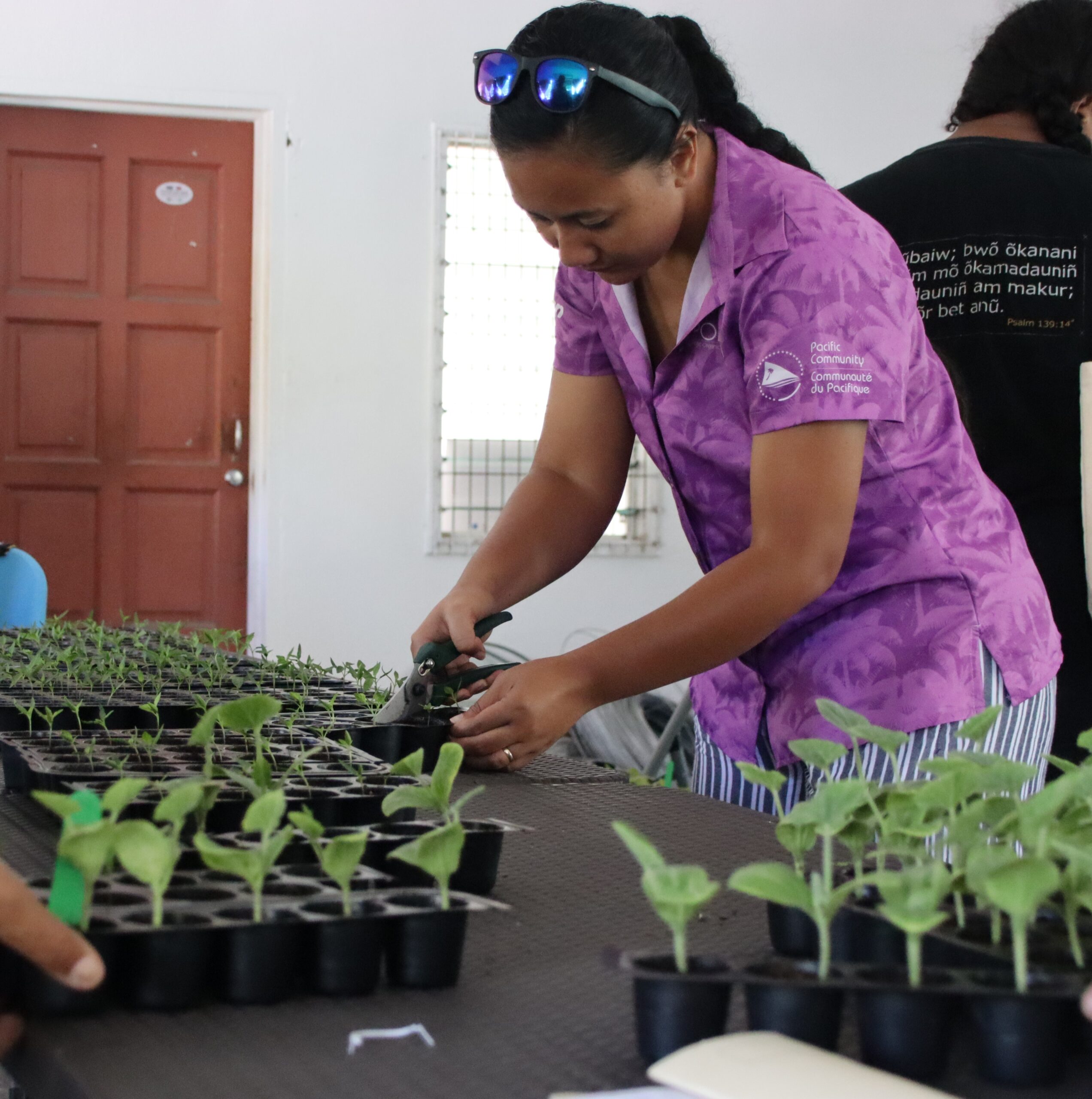By Fuatino Fatiaki, Organic and Agroecology Officer with the Pacific Organic and Ethical Trade Community, Land Resources Division, Pacific Community – SPC

The Pacific Islands house some of the world’s most biodiverse areas, featuring many endemic species singled out by their uniqueness. As vital contributors to the planet’s life-sustaining ecosystem services and functions–soil conservation, water cycling, pollination, pest and disease control, carbon storage, and nitrogen fixation–biodiversity is critical for our collective survival. Despite its invaluable nature however, vulnerability exists in light of increasing pressure from unsustainable agricultural production systems, including excessive pesticide usage and natural resource extraction for food. It’s true that agricultural output significantly fuels our economies, however, the true cost effects, including biodiversity loss, outweigh any short-term economic gain.
Agricultural production systems have the potential to shift away from current practices in favor of more ecologically friendly management options. These solutions must include a blend of documented best practices, both science-based and those building on indigenous local knowledge and methods. This presents an opportunity to overcome the obstacles facing natural ecosystems and create long-term positive changes.
At the United Nations Biodiversity Conference in December 2022, leaders from around the world gathered to draft an international agreement requiring protection of 30% of earth’s land and ocean by 2030. This agreement sets out 22 additional goals aimed at reducing biodiversity loss. These goals include cutting overconsumption, reducing food waste by 50%, eliminating harm to essential ecosystems for biodiversity preservation, protecting indigenous peoples’ rights, and reforming current subsidy policies. Meeting these goals will help us protect delicate ecosystems all around the world.
Our role as Pacific Islanders is to lead these efforts by finding synergies within our national policies for sustainable management of natural resources and biodiversity conservation and use. This will especially guide the revision or implementation of National Biodiversity Strategies and Action Plans to help meet the relevant biodiversity targets set out at the 2022 UN Biodiversity Conference.
Key Actions to Achieve Biodiversity Conservation (not limited to the following):
The Pacific Community through the Pacific Organic and Ethical Trade Community (POETCom) remains committed to #buildbackbiodiversity through the implementation of its Pacific Organic Learning Farms Network (POLFN) project that focuses on the scaling up and knowledge sharing of organic and agroecological agriculture that will benefit the shared environment and synergistic relationships that sustain the health of plants, soil, water, air, ecosystems, cultures and people. The project represents a valid tool for halting and reversing biodiversity loss by securing environmental conservation through the use of agro-ecological methods of production.
As we celebrate the diversity that sustains all life in the Pacific on this important International Day for Biological Diversity, let’s also join our farmers and agricultural producers to ensure their livelihoods thrive while also building back the biodiversity that serves as the foundation of their work and community.